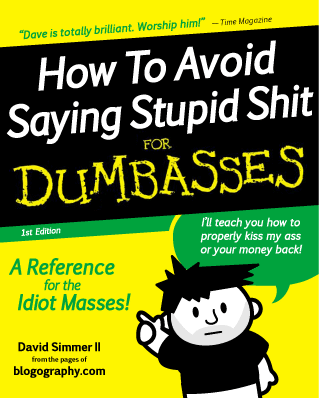You are using an out of date browser. It may not display this or other websites correctly.
You should upgrade or use an alternative browser.
You should upgrade or use an alternative browser.
Stupid Sayings
- Thread starter StrangerInAStrangeLand
- Start date
The exception proves the rule.
Once upon a time this made sense. What it meant was the exception tests the rule. People repeat this now meaning the exception shows the rule is true/accurate/good which is absurd.
<>
Like i before c except after e
Not checked but heard on QI there are more words with c before i before e
Coffee time
If it was so easy it would not be foolish.A fool and his money are soon parted
Question - is this trickle down foolishness?
The fool at the top (though I am unclear how you define the top fool) has to be given the money, (by a higher fool???) or how else does he/she get money to start with?
From this high point the money trickles out to other fools. Somewhat like champagne in a pyramid of glasses
Only stops when the money (champagne) runs out
Homework for anybody - Who puts (or how does) the money (champagne) get back to the top?

"Give and you shall receive " George Best (attr.)
///Like i before c except after e
Not checked but heard on QI there are more words with c before i before e
Coffee time

The ‘i before e, except after c’ rule is a giant lie
https://www.washingtonpost.com/news...pt-after-c-rule-is-a-giant-lie/?noredirect=on
A Student Just Debunked the Most Famous Grammar Rule of All Time
https://www.rd.com/culture/i-before-e-rule/
<>
///
The ‘i before e, except after c’ rule is a giant lie
https://www.washingtonpost.com/news...pt-after-c-rule-is-a-giant-lie/?noredirect=on
A Student Just Debunked the Most Famous Grammar Rule of All Time
https://www.rd.com/culture/i-before-e-rule/
<>
Thanks for the confirmation info
///Thanks for the confirmation info

It is a good guess that no 1 bothered to count until now. Like Aristotle & teeth.
<>
///
I have to wonder how many times they went round in circles.
<>
I think we are taking about a different bush here
You need to be firm about finishing up and get into it by getting into the lady parts bush
Why ask why?
<>
<>
Reminds me of another old joke: " He doesn't know the meaning of the word 'quit'. He doesn't know the meaning of the word 'fail'. He doesn't know the meaning of a lot of words....""And now, a man who needs no introduction".............................
Just once
I'd like to hear someone say only that, then turn smartly to his/her right and walk off the stage.
"We'll cross that bridge when we come to it."
This usually means, don't plan ahead for contingencies.
The people who said that are still on this side of the collapsed bridge, while the ones who didn't heed them brought inflatable rafts and paddled across.
(Yes, all right - I'm a champion of pessimism. We invented flashlights, vaccines and parachutes.)
This usually means, don't plan ahead for contingencies.
The people who said that are still on this side of the collapsed bridge, while the ones who didn't heed them brought inflatable rafts and paddled across.
(Yes, all right - I'm a champion of pessimism. We invented flashlights, vaccines and parachutes.)
And won a big election --- sort of.Reminds me of another old joke: " He doesn't know the meaning of the word 'quit'. He doesn't know the meaning of the word 'fail'. He doesn't know the meaning of a lot of words...."
sculptor
Valued Senior Member
Reminds me of another old joke: " He doesn't know the meaning of the word 'quit'. He doesn't know the meaning of the word 'fail'. He doesn't know the meaning of a lot of words...."
I was banned from a web blog by someone who did not seem to know the meaning of the word "ultimate" when used as an adjective.
I know somebody who uses "penultimate" as if it meant "even more than ultimate".I was banned from a web blog by someone who did not seem to know the meaning of the word "ultimate" when used as an adjective.
sculptor
Valued Senior Member
Would antepenultimate confuse this person?I know somebody who uses "penultimate" as if it meant "even more than ultimate".
It confuses me. I think I'll stick with second-last and third-last.Would antepenultimate confuse this person?



